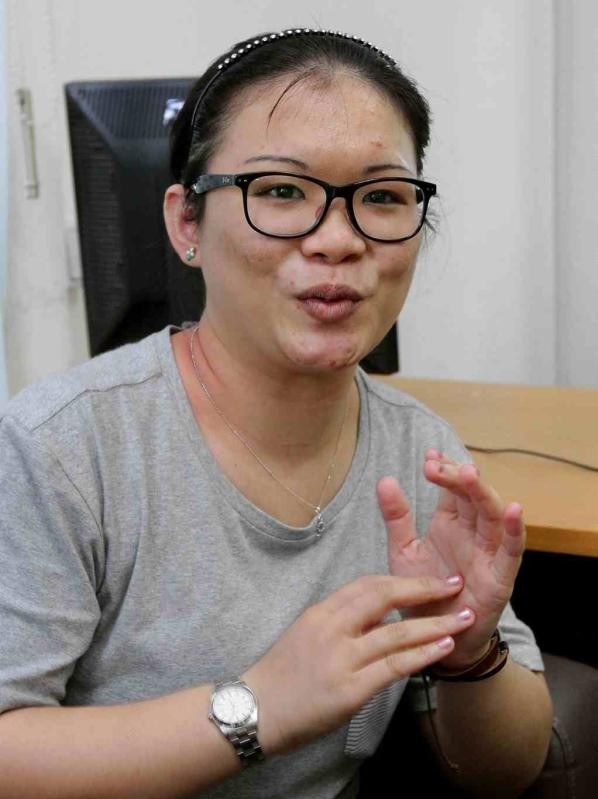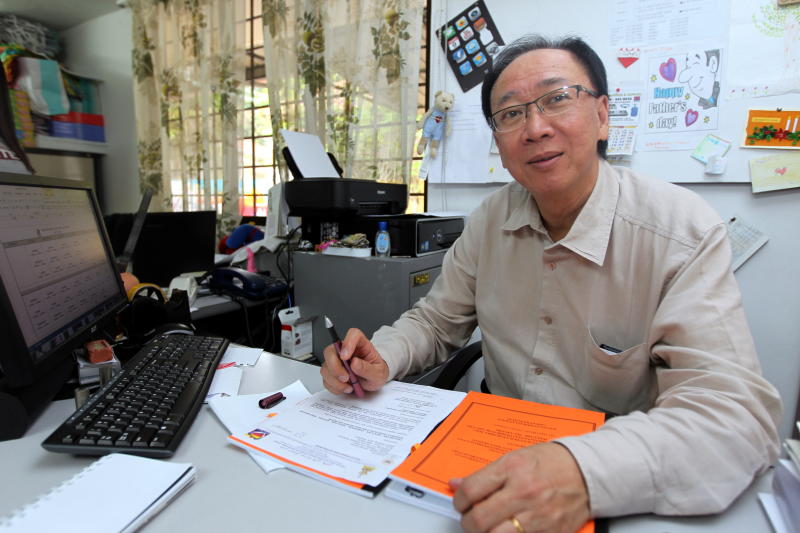UNDERPRIVILEGED children in welfare homes live by fairly strict guidelines. They’re told exactly when to bathe, when to eat and what they can or can not do. In a way, said Rumah Hope event coordinator Henry Igoh, they’re pampered.
And sadly, as they transition into adulthood, whether that means college or joining the workforce, it can be a struggle.
“The whole time they are here, everything is planned for them from A to Z, so when they go out into the world, it can be difficult for them to be independent,” said Igoh.
Trying to sort out your future when you turn 18 can be pretty daunting even with a family to offer support and advice. So imagine doing all that on your own, with only whatever help the people at the welfare homes can afford to give.
The children of welfare homes – whether they’re orphans, victims of abusive parents, or children whose parents simply can’t afford to feed them – are all required to leave the homes when they turn 18. Some who can’t get a job or a college admission are allowed to stay on, but that’s just a temporary arrangement.
Teh Beng Chai, 22, was sent to the Shelter Home for Children at the age of four as his single mother could not afford to care for him.
According to him, only half the people he grew up with at the home are doing well, working or studying on their own. The other half mostly ended up as drug addicts, gangsters, criminals or street kids.
“The kids who do not end up well are usually the ones who’re depressed or who feel sorry for themselves for not having the support of their parents,” he said. “So they don’t listen to the caretakers and do things without thinking about the consequences.”
Sadly, his sister was one of them.
His sister first ran away from their welfare home at the age of 14, and eventually went missing altogether. After years of not knowing what had happened to her, his mother received a call from the police. It was then that they found out she was a drug addict.
“I was surprised. My sister was an easy-going person, and we were close,” said Teh. “I saw her again about 2 years ago, and she was looked really skinny and unhealthy.”
Teh has now lost all contact with his sister.
Inner struggles
Most children of welfare homes start adulthood with a few distinct disadvantages.
Shelter Home for Children general manager Cheok Hoong Poh said by the time most of the children arrive at a home, they would already be a few years behind on their education.
“It happens basically because their parents don’t pay attention to their education, or are so poor they can’t afford it. It’s a lot to do with neglect,” he said.
Josephine Lee, 22, may look like a regular e-commerce student in a college in Sabah, but when she first entered Rumah Hope at the age of nine – because her single mother could no longer provide for her and her two sisters – she hadn’t even learnt to read. She finally did at the age of 12.
“I had to study extra hard for my SPM and STPM, so I could catch up and get into a good college,” said Lee, who is now studying thanks to a PTPTN loan.

Josephine Lee, 22, entered Rumah Hope at the age of nine and only learnt to read three years later. She is now studying e-commerce in Sabah.
Many also arrive in welfare homes with very low self esteem, and they often carry these issues well into adulthood.
Esther Lim, 18, was introduced to Shelter two years ago after her mother suffered a stroke and she had no one to care for her. She may be busy preparing for college and scholarship applications today, but back then, she admitted to having huge self-esteem problems. “As time went on, I had to learn to get over it on my own,” she said.
Lee experienced the same, saying she “felt ashamed” of herself during secondary school.
“I was ok in primary school, because there’s no ‘status quo’ at that age,” she said. “It was different in secondary school. Friends there looked down on me sometimes and judged me for coming from a poor background.”
Sadly, not all who grow up in welfare homes manage to overcome their difficult circumstances like Teh, Lee and Lim. The three are regarded as positive examples by their caretakers. Teh for example, only managed two credits in his SPM exam, but he persevered and now has a steady job at the front office of Traders Hotel.
“I have friends who left our home without completing their Form 5, and they ended up as gangsters, because there’s nothing else they can do,” said Teh.
For their well-being
Though some like Igoh believe being in a welfare home often causes the children to struggle in the real world, Cheok and Rumah Hope chairman Jacob Matthew have a lot of faith in their children.
“I believe these kids can be street smart. Some of our kids have actually proven that. They might have difficulties in the beginning, but they eventually turn out well,” said Jacob.
Cheok and Jacob admit welfare homes require strict guidelines to ensure the well-being of the children. There are, after all, around 40 kids at each home. At Shelter, for example, they prohibit anyone below 18 from owning a mobile phone.
Lim remembers having to give up gadgets and social media when she joined the home. It might seem like a small issue, but for a teenager, it takes some getting used to.
“Before you’re 18, things are much stricter around here. You can’t really hang out with friends outside,” she said, adding that the children sometimes try to run away because of the lack of freedom.
Unfortunately, that’s just the reality of living in a welfare home. Children don’t often get their own say in things, and exceptions usually lead to conflict among the children, said Cheok.
“In the past, before we tightened the rules, bad things happened more frequently. Once, we allowed a girl to go out late and meet up with friends and, as it turns out, they were making plans to run away,” he explained. “All these procedures are definitely for their safety and well-being.”
In the end, Cheok said the children simply have to rely on their own determination to make something out of their lives.
Hopeful future
Of course, the three young adults are not isolated success stories. Cheok and Jacob have seen many of the children from their welfare homes successfully make it through college, vocational school or get decent jobs.
“We had a Malay boy who is in the United States now studying medicine. He’s one of the best students we’ve had,” Cheok recalled.
Considering themselves lucky to have come out on the better side of the system, Lim and Lee have been working with their respective welfare homes, hoping to inspire other underprivileged children.
“There were times when I did feel like giving up, so I know how it feels. That’s why I come back (to Rumah Hope) to tell the kids not to give up, and to be a role model for them. They really need the encouragement,” said Lee.
Teh is now setting his sights on a managerial position in Traders Hotel, while Lim hopes to travel the world someday. Lee on the other hand, is working towards a scholarship to do a Masters degree.
Yet, there was a time in all their lives when living in a welfare home was their only option. Now, as they come of age amidst the many challenges of life, they have endless possibilities ahead.



Leave a reply